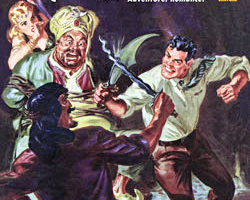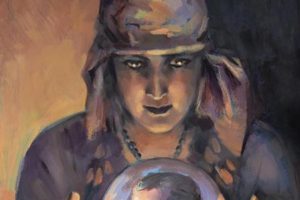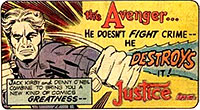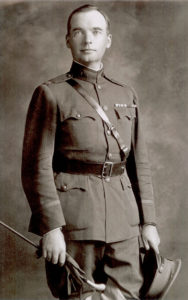
In the past I’ve written on the pulp-comics connections with several of the major and minor pulp publishers. And recently I posted on the pulp roots of Marvel Comics. But I guess I need to take a look at DC Comics.
The pulp connections at DC Comics are even more obscure then Marvel’s. Not helped that, again, most are not aware of DC Comics “origins” as a company.
What we now know as DC Comics was formed as National Allied Publications by Major Malcom Wheeler-Nicholson in 1935. The Major was a pulp writer, but never a publisher until he formed National Allied. The major change he brought to the comic-book industry was to publish original comic-book work, not just comic strip reprints. That was actually kind of daring, and increased his costs (and risks).
However, when he was trying to get his third title out, Detective Comics, he had to take on backers. These were Harry Donenfeld and Jack Liebowitz. Within a couple of years Donenfeld and Liebowitz forced out Wheeler-Nicholson and took over his company. And that is putting in mildly. Most liken it to a “hostile takeover.”
Donenfeld owned a printing plant and a distribution company, Independence News. Donenfeld also published pulp magazines under a variety of company names: DM, Culture, Trojan, Speed, Arrow. Yes, Donenfeld published the spicy pulps! This included the Super-Detective title which had pulp hero Jim Anthony. Strangely, the title logo of Super-Detective matches the style of the title logo of Superman comics! But am not aware of any crossover of characters or creators between his pulps and DC Comics. He actually ran short comics in his spicy pulps, like “Sally the Sleuth.” He seems to have kept the two quite separated.
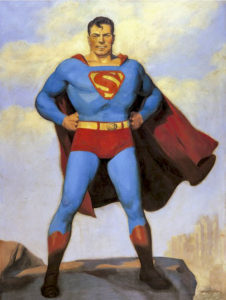
Over time things changed. In the mid 1940s, Detective Comics Inc. merged with National Allied to form National Comics. Along the way they merged with affiliated All-American Comics (which actually owned the original Atom, Flash, Green Lantern, Hawkman, and Wonder Woman). All-American was owned by Max Gaines, who would focus on his own company, EC Comics. His son Bill made it famous (or infamous) in later years, later focusing on just publishing Mad Magazine.
In the 1970s, DC Comics (as it had become) was bought out by a company called Kinney National Co., a holding company owning parking lots (and hints at mob connections!). It had previously bought EC Comics/Mad Magazine in the ’60s! It also bought Warner Bros. Pictures and renamed itself Warner Communications (selling off the parking lot business). From there it bought up a lot of other firms to make the current Time-Warner today.
But it had its origins way-back-when as a little comic-book publisher. Today, Nicky Malcolm-Wheeler keeps the memory of her grandfather alive with reprints of his work and appearances at pulp and comic events. The Major’s military career, which seems unjustly cut short, helped influence his many pulp stories. He also wrote six Bill Barnes pulp stories! Check out more about him at the blog and Facebook page.

